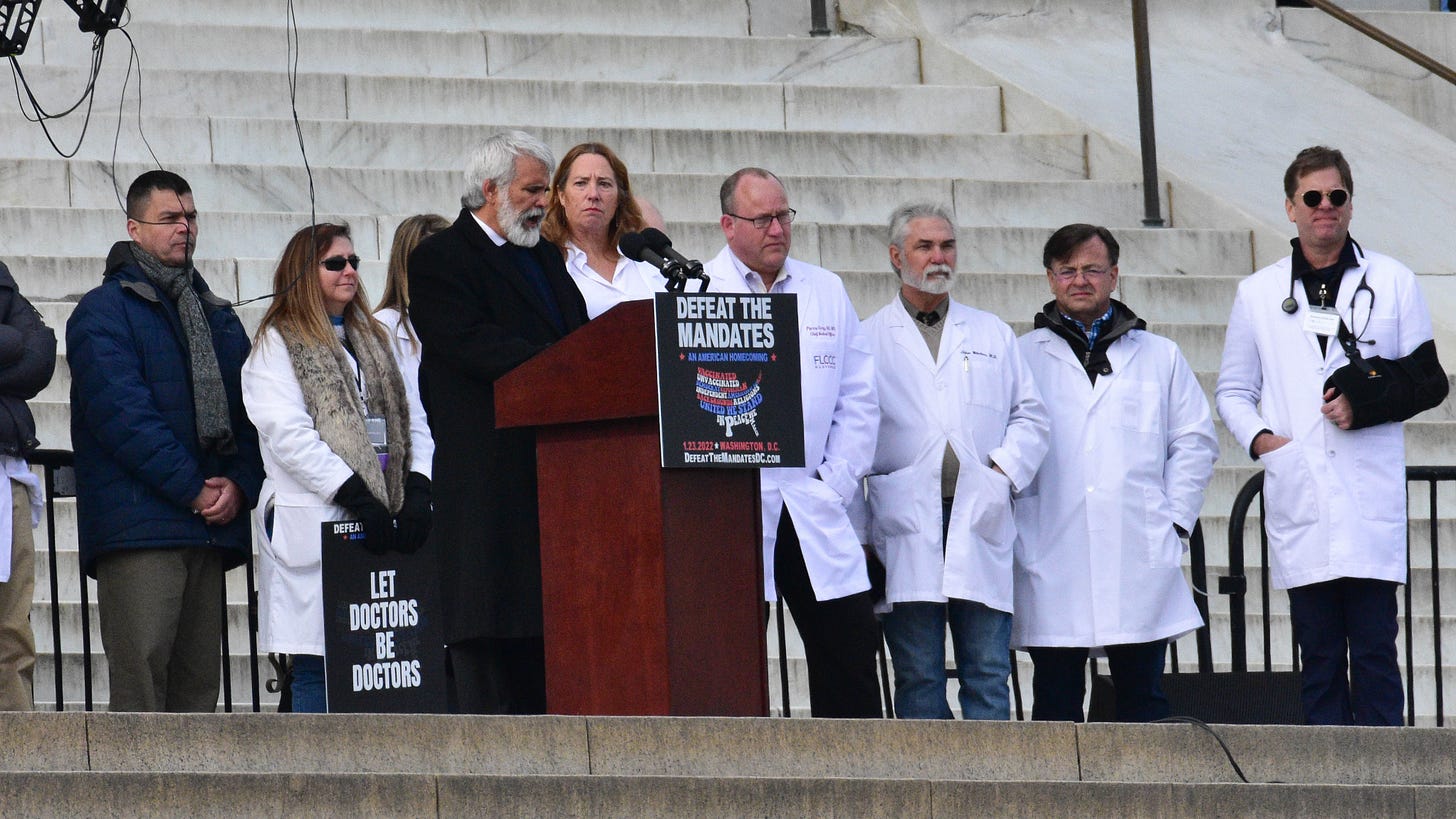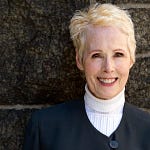
Episode Summary
After two years of a global pandemic, most people have no interest whatsoever in COVID-19. And that's completely understandable, given all the hardships and inconveniences that everyone faced as a result of the pandemic.
Almost everyone is ready to move on from covid, but there is one subset of people who are obsessed with still talking about it. And that is the same paranoid activists and politicians whose weaponized ignorance prolonged and exacerbated the pandemic to begin with, making it so much worse for everyone even as they insisted it was no big deal.
How the pandemic was prolonged by ignorant and wishful thinking public policy is a story that still deserves to be told, even as almost everyone would just like to get back with our regularly scheduled lives. And it especially deserves to be told because the covid contrarians who made things so much worse are trying to rewrite the history of what happened.
And for that reason, I was very pleased to learn about the new book of today's guest. His name is Jonathan Howard, and he is an associate professor of neurology and psychiatry at New York University. And the book that he has written is called “We Want Them Infected: How the Failed Quest for Herd Immunity Led Doctors to Embrace Anti-Vaccine Movement.”
He's also a blogger at the great medical blog, Science Based Medicine.
The full video and audio of this episode are available for free, but the audio transcript is for paid subscribers only.
Video
Transcript
MATTHEW SHEFFIELD: Welcome to Theory of Change, Jonathan.
HOWARD: Hey, thanks so much for having me, Matthew. I sure appreciate it.
SHEFFIELD: All right. So before we get into the book, let's maybe discuss there's kind of two different categories of people here that I think you're correct to sort of differentiate [00:03:00] between each other on some of this wishful thinking, public policy and covid.
Tell us what these two groups are and what your focus is here.
HOWARD: Yeah. So I have been studying the anti-vaccine movement for about a decade. And the first group of people were, and I've always been fascinated by anti-vaccine doctors in particular, to me they're sort of like arsonist firefighters spreading the very thing that they're supposed to prevent.
And the first group of doctors would be anti-vaccine doctors. In 2019, for example, these would be doctors who were opposed to the polio, measles, HPV vaccine, all of the routine childhood vaccines. Some of these names became a little bit famous during the pandemic.
You may have heard of some of them. Dr. Sherry Tenpenny, for example claimed that vaccines made people magnetic. The only doctor in the book who I know, my old friend, Dr. Kelly Brogan, who morphed into one of the country's most outspoken anti-vaccine doctors during well before the pandemic and during the pandemic. And these people are for the most part [00:04:00] doctors who you and all of your Now, for those of you who of recognize as not trustworthy sources.
They are germ theory deniers. They do not believe that HIV causes AIDS, for example, in all sorts of crazy stuff. And you will not find them in hospitals treating sick people. The second group of doctors, these are the doctors who I talk about the most and call them contrarian doctors. These are doctors who were widely respected, some of them before the pandemic as paragons of evidence-based medicine.
I even discussed a Nobel prize winner. So these are people who are definitely not quacks before the pandemic, and they mixed good advice with bad advice. So the good advice would be covid is very dangerous for grandma and very dangerous for someone with obesity and a lot of medical problems, but it's harmless for the vast majority of young people, for example.
And these doctors were very famous and influential during the pandemic. They advised President Trump. They advised Glenn Youngkin in Virginia. They advised [00:05:00] Ron DeSantis in Florida. They were ubiquitous in the media. They have very large social media presences. They were in the Washington Post, the Wall Street Journal, Fox News, the Atlantic, really just downplaying the pandemic and spreading misinformation about it in a way that was very hard for people to pick up, again, because they mixed good advice with bad advice, and they didn't say obviously crazy things that covid is all a 5G hoax, for example.
SHEFFIELD: Yeah, and it is important to note that, because the mainstream media, it wasn't just the right-wing media that was platforming some of these people. So let's, for some of these mixed advice doctors, maybe let's talk about some specific people that you do discuss their work and some of the things that they were doing.
HOWARD: Yeah. So one of the doctors who I talk about the most and start the book with is a man by the name of Dr. John Ioannidis, [00:06:00] who is a world-famous researcher. He works out of Stanford University. He's an epidemiologist, and he wrote a paper called Why Most Published Research Findings Are False, about 15, 20 years ago, which is one of the most famous papers in the history of medicine.
And he really made a name for himself, calling out bad science and promoting better science, wanting medicine and doctors to do better, so that we make the right decisions for our patients.
And he's someone who I famous favorably quoted in some of my earlier writing. And during the pandemic, starting in March 2020, he really underestimated the virus saying that it would cause many fewer fatalities than the flu, for example, and he was a ubiquitous media presence, and he made all sorts of statements that three years later turned out to be wildly underestimating the virus, but they were obviously wrong at the time.
I will give you an example. On April 9th, 2020, he gave an interview [00:07:00] to the Washington Post in which he predicted that 40,000 Americans would die of covid this season. By April 9th, 2020, 20,000 Americans had already died and 2,000 Americans were dying every day. So unless covid vanished, his prediction was going to age very poorly, very quickly, which tragically is what happened within eight days. His estimate of 40,000 deaths this season was surpassed.
And what did he do? Was he chastened? Did he revise his estimates? He did not.













